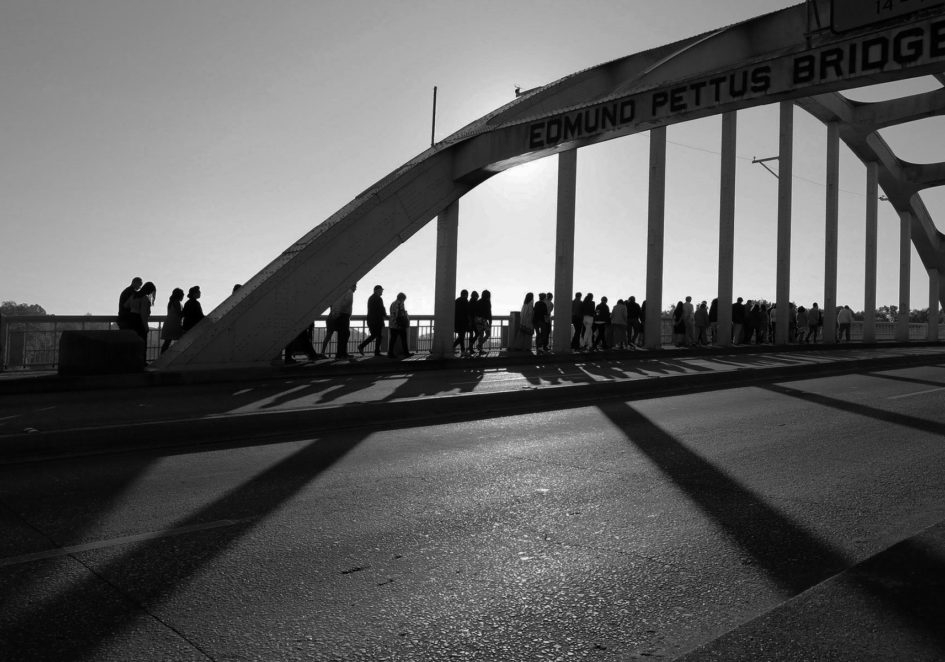October 17, 2019
Marking My 20th Year Anniversary with a Civil Rights Pilgrimage

Photo courtesy of Project Pilgrimage
Believe it or not, I am celebrating 20 years of service at WithinReach this month! Over the years, the thing I have appreciated most about my job has been the on-going opportunities for professional and personal growth.
Most recently, our strategic focus on health equity has encouraged me to increase my understanding of racism, institutional oppression, white privilege and anti-racism.
Capturing my early learnings through a blog series titled, “My Year of Waking Up,” has opened the door to amazing conversations, community-building and more opportunities for growth. Over the last two years, I have learned so much about the history of white supremacy, and the deep and damaging consequences of racial bias in our country.
Slowly, I have begun to recognize that my presence, as a white woman, can either sustain systems of oppression that keep people of color from thriving every day, or dismantle them. Dr. Ibram Kendi, author of How to be an Anti-Racist, talks about the fact that there is only racism and anti-racism – one either accepts, ignores or supports race-based systems of oppressions, or works to disrupt them. In other words, the often-heard claim made by white people, like me, that we are “not racist,” is more or less an effort to distance ourselves from the daily reality of racism in our society, and our complicity in maintaining it. Recognizing this distinction, I want to be an anti-racist, yet I am far from knowing what that actually means, or how to do it.
As I approach my 20th anniversary at WithinReach, I told our Board of Directors that I hoped to mark this incredible milestone with a significant learning event. They liked this idea, and were completely supportive when I said that I wanted to participate in Project Pilgrimage’s Fall Civil Rights Pilgrimage.
Project Pilgrimage is a non-profit organization that offers programs directed at self-examination, diverse community-building and immersive learning – all with the intention of looking deeply at the struggle for racial, gender and sexual justice and equality. Each year, the organization leads one or two Pilgrimages to study the civil rights movement, the arc of the African American freedom struggle and the systems of racial inequity that are alive and well in our country today.
In preparation for the Pilgrimage, the group spends many hours reading, learning and building community. This year, we are an intergenerational, interracial group of 23 artists, non-profit leaders, community activists, corporate representatives, students, educators, yoga teachers, parents and more.
Project Pilgrimage’s foundational commitment to interracial, intergenerational community-building means that over the last three weeks, we have spent nearly 20 hours getting to know one another, exploring our identities, discussing key concepts like racism, privilege, power and white fragility, and identifying and practicing anti-racist tools. Without a doubt, this “learning in public,” in front of others, is scary. It requires us, as Brian Stevenson, author of Just Mercy and founder of the Equal Justice Initiative, encourages, “to get comfortable being uncomfortable.”
I also heard Brian Stevenson very clearly, at a lecture in Seattle, when he said that before we can reach for healing and reconciliation, we must face the truth. We must start by facing the truth about our country’s history. My participation in the Civil Rights Pilgrimage is about just that. It is about taking a concentrated and close look at the ugly, oppressive and brutally violent part of our past that is based in race.
Over the eight-day pilgrimage, we will travel through Louisiana, Mississippi and Alabama visiting historical sites of oppression and violence along the struggle for African American freedom. We will meet with legendary civic rights activists who survived lunch counter sit-in beatings and church bombings as they fought for equity and justice.
Upon returning, I hope to share what I imagine will be narrative-changing, community-challenging and life-altering experiences.



